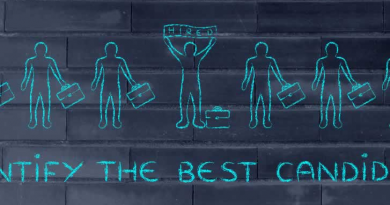Should you ask all candidates the same questions?
My very first job as a school governor (equivalent to a school board member) was to recruit a new deputy head.
It was quite clear who the best candidate was and I can say, without doubt, that we recruited the wrong candidate. I arrived at the meeting and was given a piece of paper with my question on it. I had to ask all the candidates this one question. My other eight colleagues had their own questions, which they also put to each candidate.
The candidate was sat on a chair in front of the long table where we all sat.
I could not believe that people were still using this process.
When I asked the other governors about their method they told me that this was ‘fair’ and we had to treat all candidates the same. This is to completely misunderstand the whole recruitment process.
The purpose of the interview
In this case (because the process was so poor and the interview was the only screening we were using) the purpose of the interview was to identify if the candidate could do the job.
Instead of asking about actual experiences and finding out what the candidate had achieved, we were asking “What would you do if…?” questions whose answers were completely unreliable (this was clear from the performance of the individual we recruited).
How can it be fair to ask different questions?
Your objective in this kind of interview is to identify if the candidate has specific skills and behaviours. To do this you need to employ your investigative skills. Many candidates have excellent experience, but are poor at letting you know. So you have to dig.
Now it may be that you start off with the same question. Here’s a recent example:
Have you made any unpopular decisions?
Depending on the answer of the candidate, you really need to follow this up with very different questions:
Candidate: Yes
Interviewer: What was the most difficult?
Candidate: I don’t think so
Interviewer: What about decisions that your team or boss did not immediately like?
Candidate: Unpopular with whom?
Interviewer: With your team.
Now it may be in this case the interviewer thinks the job is going to involve lots of unpopular decisions because that’s what it would be like if he did the job.
But usually you are asking about unpopular decisions because it is likely to lead to examples of the specific skills you are looking for. These could possibly be negotiation skills, resilience or communication skills.
But let me take you back to some recruitment I did where we were looking for managers with just such skills. My client defined “resilience” and being able to keep calm and to your course of action in the face of hostility. I had designed a very robust process for these candidates.
They had to take part in various activities and role-plays while we observed them. Every now and then we would see candidates where we could find no examples of resilient behaviour through the entire day. Not because they weren’t resilient, but because they were such good negotiators that they never encountered the hostile behaviour that other (often more argumentative) candidates seemed to attract.
So a really skilled candidate would have found ways to make “unpopular decisions” palatable and may not even see them as “unpopular”, which would mean you would not get very useful evidence from this question.
Different questions
You need to have a selection of questions so that if you do not get examples of the behaviours and skills you are looking for from the first question, you have plenty more areas to search in. This is not cheating and it is not treating people unfairly.
When I prepare lists of questions for clients to ask their candidates in the final interview, I make sure there are alternatives if first one doesn’t give you the information you need. This is much fairer to the candidate who just hasn’t had the experience you are asking about. It’s also fairer to you, because it means you are more able to find the candidate you need.
What happened to the candidate who should have got the job?
In case you are wondering about my original example here, the candidate who should have got the job, Liz, was already head of science at the school. She didn’t get the job because she was “too good in her current role, we can’t afford to lose her from that”.
Of course we did lose her – she went to another school as their deputy head and I’d be very surprised if she didn’t go on to be an excellent head teacher. She did well but we lost a very good member of the team.





